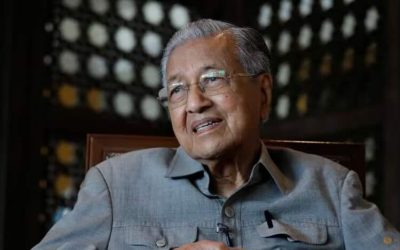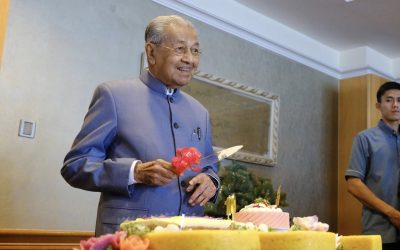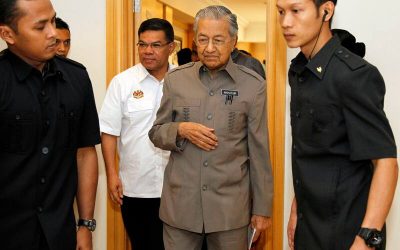Prime Minister Anwar Ibrahim of Malaysia finds himself navigating choppy waters as his reformist agenda faces mounting challenges. The recent caning of a man in Terengganu state has cast a dark shadow over Anwar’s liberal democratic credentials, highlighting the growing tension between religious conservatism and progressive ideals in the country. This incident is part of a broader trend of religious controversies that have been on the rise since 2022, testing the limits of Anwar’s ability to balance competing interests within Malaysia’s diverse society.
As Anwar’s credibility wanes, the political scene has been further complicated by developments surrounding former prime minister Najib Razak. The court’s decision to hear Najib’s request for a review of his bid for house arrest has reignited debates about the alliance between Anwar’s reformist Parti Keadilan Rakyat (PKR) and the former ruling party, the United Malays National Organisation (UMNO), that allowed the now-prime minister to secure power in 2022. Najib, who was sentenced to 12 years in jail in 2022 and received a partial royal pardon in 2024, now seeks to leverage an alleged addendum to the king’s pardon that would allow him to serve the remainder of his sentence under house arrest.
The government’s handling of Najib’s case has raised eyebrows, particularly in light of the cabinet’s proposition in November 2024 to introduce legislation allowing prisoners to serve sentences under house arrest. Critics view this move as a thinly veiled attempt to accommodate Najib’s request, further eroding public trust in the administration’s commitment to justice and accountability. Also, the government is believed to have instructed the attorney general to apply a gag order on the addendum.
As Malaysia looks ahead to the upcoming state elections in Sabah, scheduled for the end of 2025, Anwar faces yet another critical test of his leadership. The recent leadership crisis in Sabah, marked by corruption allegations against the chief minister’s administration, underscores the fragility of political alliances in this strategically important state. Sabah’s continued support remains crucial for Anwar to maintain his grip on power, making the coming months pivotal for his administration.
With the possibility of an early dissolution of the Sabah state assembly looming, Anwar must navigate these turbulent political waters carefully. His ability to address religious sensitivities, manage high-profile legal cases, and secure crucial electoral support will determine his political future.
This article first appeared on csis.org



